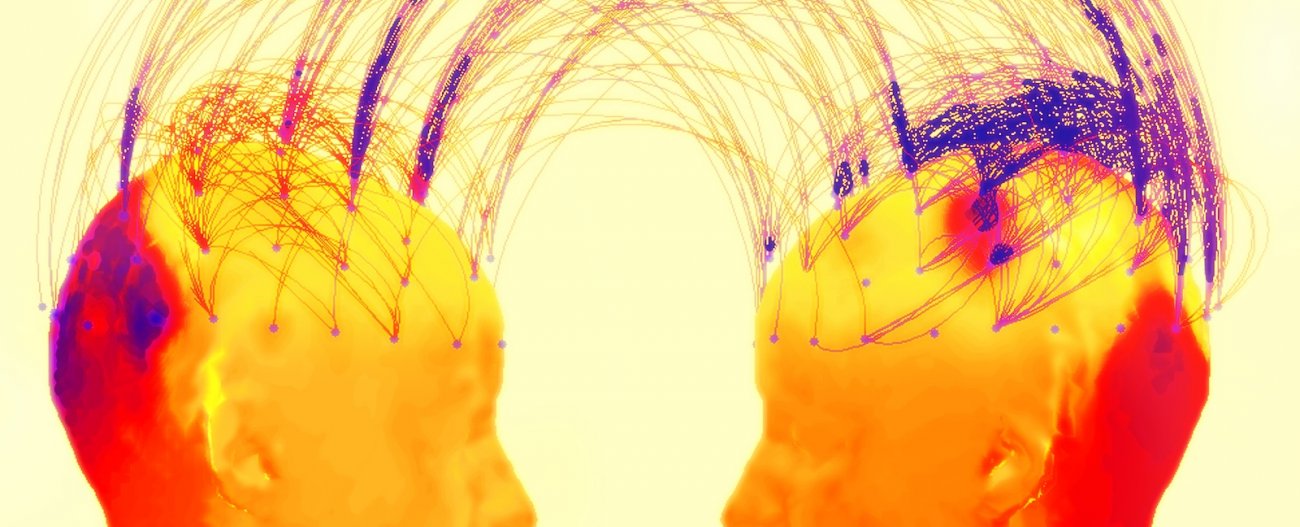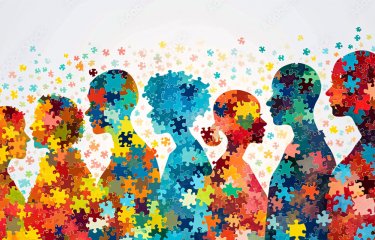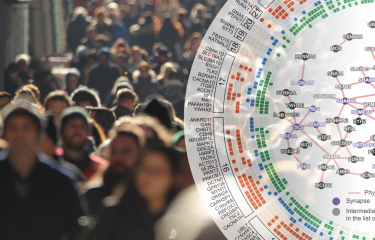On Saturday March 30, nearly 550 people came to the Institut Pasteur for a day focusing on the latest progress in research by the Institut Pasteur and Robert Debré Hospital on autism and autism spectrum disorder. This unique event also included a presentation of "Autisme Info Service", France's first free national platform for support and information on autism launched in April 2019, and a progress report on the national autism strategy, one year after its launch.
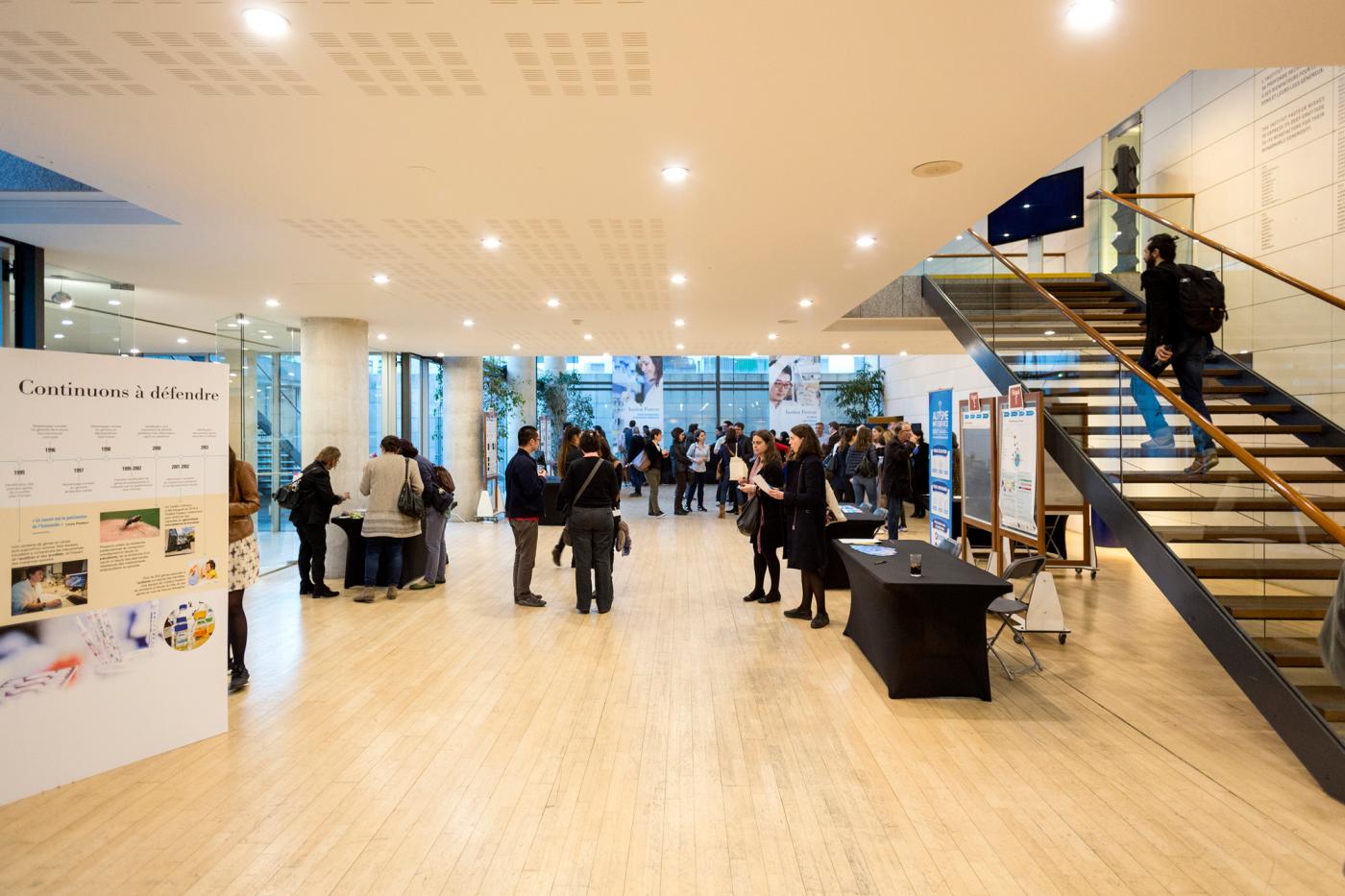
The event, organized on the initiative of Thomas Bourgeron, Head of the Human Genetics and Cognitive Functions Unit at the Institut Pasteur, and his team, provided an opportunity to find out more about the latest research on autism and autism spectrum disorder (see our disease fact sheet).
Recent research and discoveries about autism resulting from cooperation between scientists at the Institut Pasteur, child psychiatrists at Robert Debré Hospital, and more broadly French and European partners were presented.
Discussions particularly focused on the importance of genetics, the need for a precise early diagnosis, and the complexity of treatments owing to the wide-ranging profiles of people with autism.
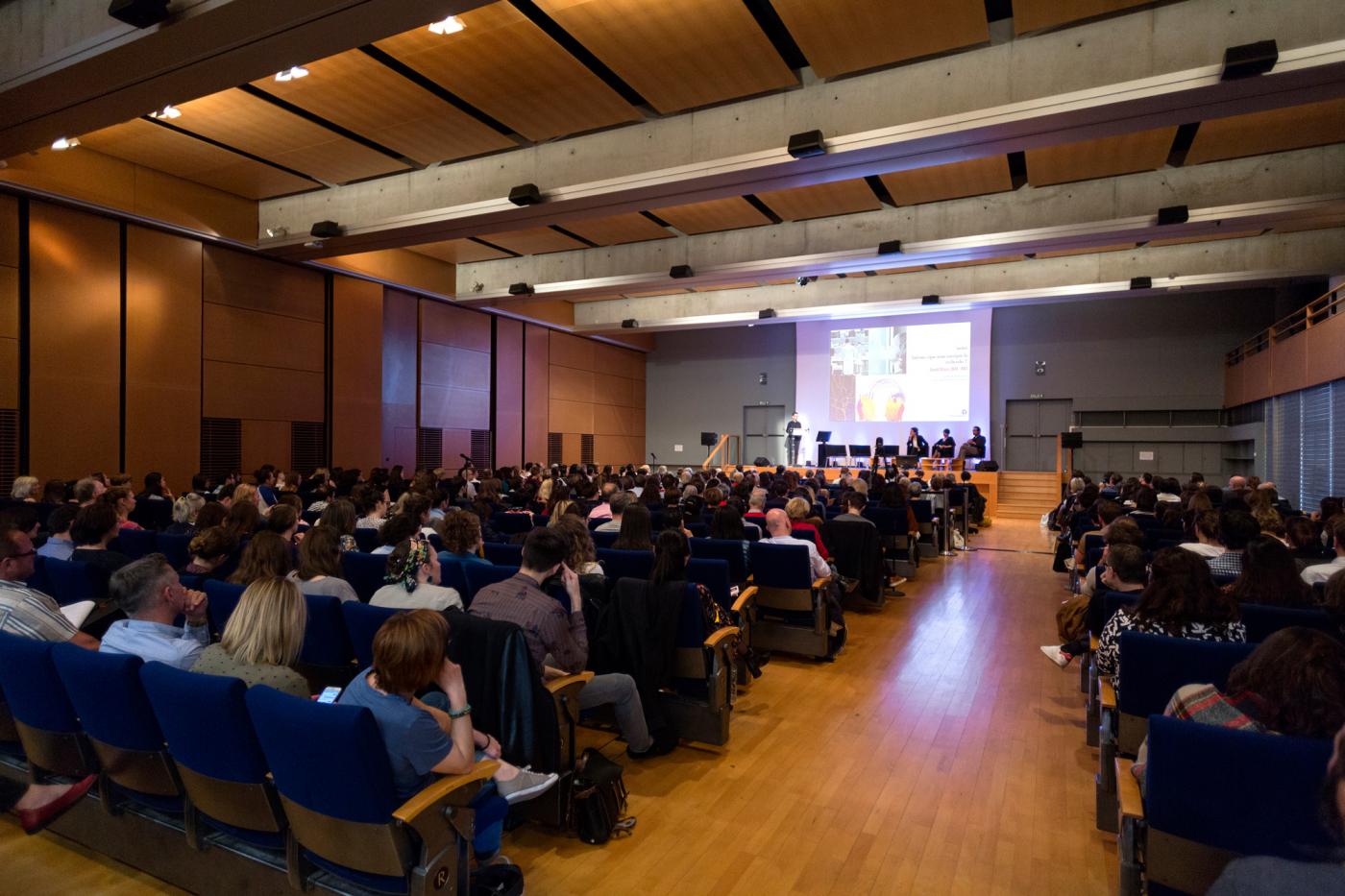
This major event was also an opportunity for the general public, and especially patients and their families, to meet the scientists and clinicians involved at various levels in efforts to understand and tackle autism.
One distinguished guest was Claire Compagnon, interministerial delegate for the national autism strategy within the broader landscape of neurodevelopmental disorders, who set out the five pledges in the French national autism strategy for the period 2018-2022 (see inset below).
Launch of the "Autisme Info Service" platform
On April 2, World Autism Awareness Day, "Autisme Info Service" – France's first free national platform for support and information on autism, was launched. Samuel Le Bihan and Florent Chapel, Vice-President of the Autism Foundation – both parents of autistic children – came along to the event and set out the main aims of the platform. "We realized that families were in desperate need of answers," explained Samuel Le Bihan. "That's why we came up with the idea of a platform that would be available to everyone." Florent Chapel cited the findings of a recent survey:
- 80% of people need someone to talk to ;
- 93% of people need information ;
- 97% of people need advice.
The main aim of this dedicated space for people with autism and their families is to provide information about autism screening and diagnosis, activities, administrative procedures and professionals that can provide valuable assistance. The platform offers several tools:
- a telephone helpline, live chat and email support service ;
- an information service with resources, latest news and a directory.
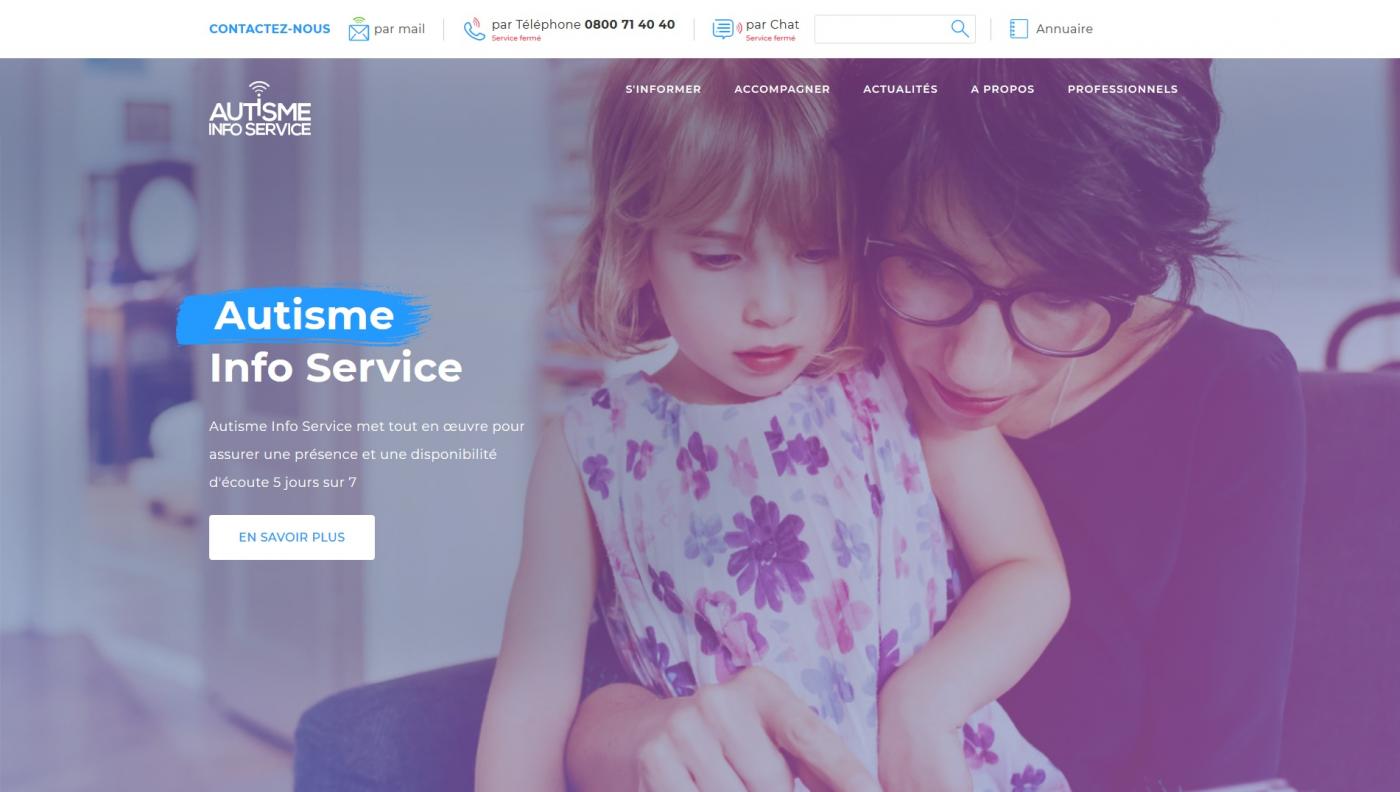
The Autisme Info Service platform also has a Scientific Advisory Board:
- Marion Leboyer, psychiatrist, Head of the Psychiatry and Addiction Department at Henri-Mondor Teaching Hospital and Head of the Translational Psychiatry Laboratory (Inserm U955);
- Thomas Bourgeron, Professor at Paris Diderot University, Head of the Human Genetics and Cognitive Functions Unit at the Institut Pasteur;
- Richard Delorme, Head of the Child and Adolescent Psychiatry Department at Robert Debré Hospital.
All the members of the Scientific Advisory Board attended the event at the Institut Pasteur, each presenting their research and the research carried out by their teams.
The Institut Pasteur and Robert Debré Hospital: the benefits of translational research
The Institut Pasteur and Robert Debré Hospital presented the research they are carrying out together with the aim of improving understanding of brain function and neurodevelopmental disorders. Several collaborative multidisciplinary projects are under way, led by Thomas Bourgeron, Head of the Human Genetics and Cognitive Functions Research Unit, and Richard Delorme, Head of the Child and Adolescent Psychiatry Department at Robert Debré Teaching Hospital. Some of these projects are presented below.
THE GENETICS OF AUTISM
The Human Genetics and Cognitive Functions research unit at the Institut Pasteur was the first to confirm the genetic origin of autism in 2003, by identifying localized mutations in the genes NLGN3 and NLGN4X. These genes contribute to the function of synapses, the contact points between neurons (cells used by the brain to process information). The same team then demonstrated several other genes involved in autism, including SHANK1, SHANK2, SHANK3 and NRXN1, which also play a role in communication between neurons. More than 500 genes have now been associated with autism.
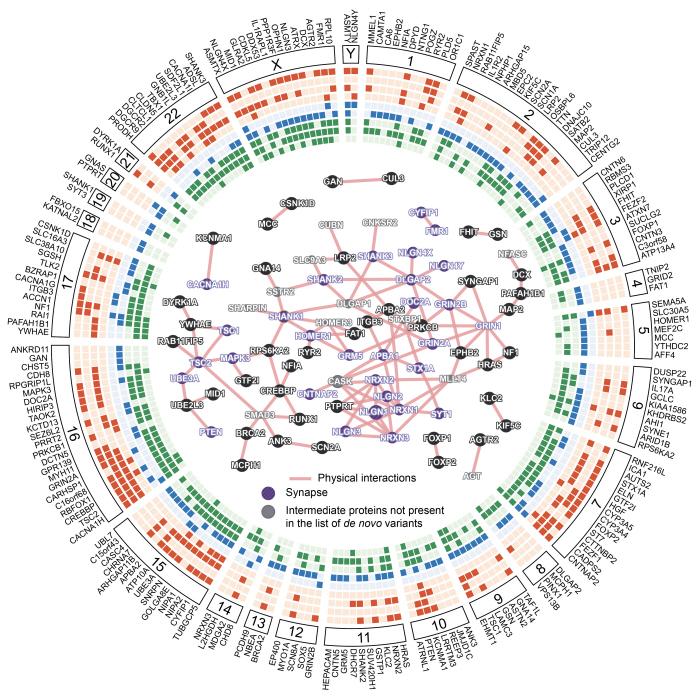
Alongside this research, the unit is:
- working on the genetic mechanisms associated with a significant decrease in melatonin (more than half of those with autism have sleeping disorders),
- seeking to identify new genes associated with autism,
- attempting to understand why some individuals are resilient – in other words they have few or no autistic symptoms, despite carrying mutations known to be involved in autism,
- studying the non-coding regions that make up 98% of the genome (with functions such as regulation),
- exploring the impact of genetic mutations on brain development and function by using brain imaging and animal models.
In 2008 and 2012, the first mouse models with mutations in the synaptic genes NLGN4 and SHANK2, associated with autism, were created. These mice have abnormal social interactions and ultrasonic vocalizations; they represent good models for autism and are currently under study at the Institut Pasteur and by several teams worldwide.
At Robert Debré Teaching Hospital (part of the Paris Public Hospital Network, or AP-HP), the Center for Autism Diagnosis and Assessment (CDEA) carries out diagnostic assessment and offers therapeutic guidance for children. It is part of a regional network of eight CDEAs in the Greater Paris region and a national network of autism resource centers.
Patient assessment includes a standardized diagnosis of ASD (clinical assessment and standardized interview with the family based on the ADI-R [Autism Diagnostic Interview, Revised, Rutter 2003] and ADOS-2 [Autism Diagnostic Observation Schedule, second edition, Lord 2012]) and associated disorders, a cognitive or developmental assessment (Wechsler Scales, Mullen Scale of Early Learning or Raven Matrices depending on the age and capabilities of the person), a speech and language assessment and psychomotor assessment, establishment of personal and family medical and psychiatric history, and systematic further tests (biological and genetic testing and brain imaging – EEG and MRI).
Several projects are under way to improve understanding of:
- the recurrence of autism;
- the first signs of autism in infants;
- links with sensory disorders (hyper- or hyporeactivity to sensory stimuli, synesthesia, etc.).
Any first- or second-degree relatives who wish to do so can also be assessed in the same department (medical and psychiatric history, clinical interview and cognitive assessment) to improve understanding of the genes associated with autism in families (multiplex families project).
Exploring brain activity
MRI and EEG scans can determine "when and where" information is processed in the brain, helping shed light on the differences in brain processing between people with autism and neurotypical individuals.
The SoNeTAA (Social Neuroscience for Therapeutic Approaches in Autism) platform set up by Guillaume Dumas, a scientist from the Human Genetics and Cognitive Functions Unit at the Institut Pasteur, and Aline Lefebvre, a psychiatrist at Robert Debré Hospital, is designed to bridge the gap between state-of-the-art social neuroscience methods and clinical psychiatry practices. This platform carries out pioneering hospital-based recordings of brain activity during social interactions between two people, or between a person and a machine.
Patients at Robert Debré Hospital are benefiting from this recording technique, and the data collected are made available to the research unit. The SoNeTAA platform is an integral part of the Psychiatry Department at Robert Debré Hospital.
Various medical therapy protocols, especially using Arbaclofen in connection with the clinical trials for the EU-AIMS-2 project (see inset below), are currently being set up. The EEG and MRI approach can be used in this context to assess whether any changes in brain activity occur during a medical therapy protocol and to analyze whether such changes bring about any developments in the patient's clinical status. Another aim of medical therapy protocols is to identify predictive markers of response to a therapeutic strategy, with the long-term goal of tailoring prescriptions to each individual.
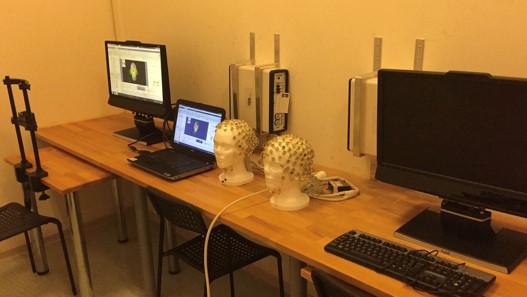
Genetic exploration
The Cytogenetics Unit at Robert Debré Hospital is at the interface between the Psychiatry Department led by Prof. Richard Delorme and the research unit led by Prof. Thomas Bourgeron.
Dr. Anne Claude Tabet is involved in both recruiting patients and informing families of the results of genetic testing. The rapid development of genotyping and sequencing techniques is speeding up progress in identifying the genetic causes of ASD. Methods to sequence a panel of genes involved in neurodevelopmental diseases, combined with high-resolution DNA microarray analysis, can currently be used to provide a reliable genetic diagnosis for 5-10% of people with autism. This figure increases to more than 20% for individuals with intellectual disability. Ultra-high-throughput sequencing of the entire genome is currently only performed for research purposes, but it could be used in clinical investigation in the coming years.
The Institut Pasteur is also involved in a European consortium, AIMS-2-TRIALS, with partners from 14 countries, including autism experts specializing in neuroscience and clinical practice, and the Institut Pasteur which provides genetic expertise. The scale of the project is enabling the consortium to monitor thousands of patients over several years. It is hoped that AIMS-2-TRIALS will help identify patient subgroups, with the aim of developing precision medicine.
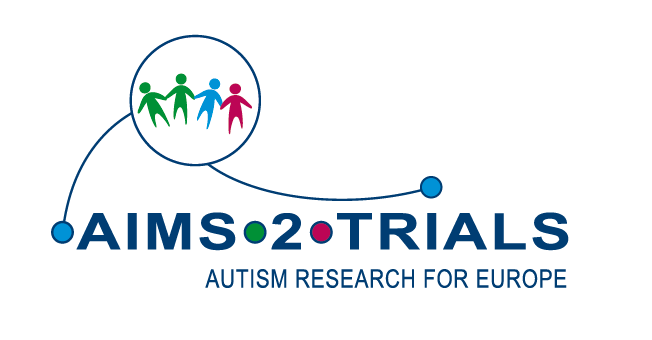
The unique event held on March 30 at the Institut Pasteur was attended by Claire Compagnon, interministerial delegate for the French national autism strategy within the broader landscape of neurodevelopmental disorders. While acknowledging that France has historically lagged behind in terms of its autism policy, she emphasized the government's determination to take into account the many differences and wide-ranging experiences among autistic individuals, their families and professionals in the field.
The strategy looks at the entire life cycle of people with autism, from early childhood to adulthood. It can be summed up in five pledges:
- placing science and research at the center of public policy;
- enabling early intervention for children;
- catching up the backlog in terms of school refusal for autistic children;
- providing effective support for adults;
- offering vital support to families and recognizing their expertise.
Press kit from the State Secretariat to the Prime Minister Responsible for People with Disabilities



